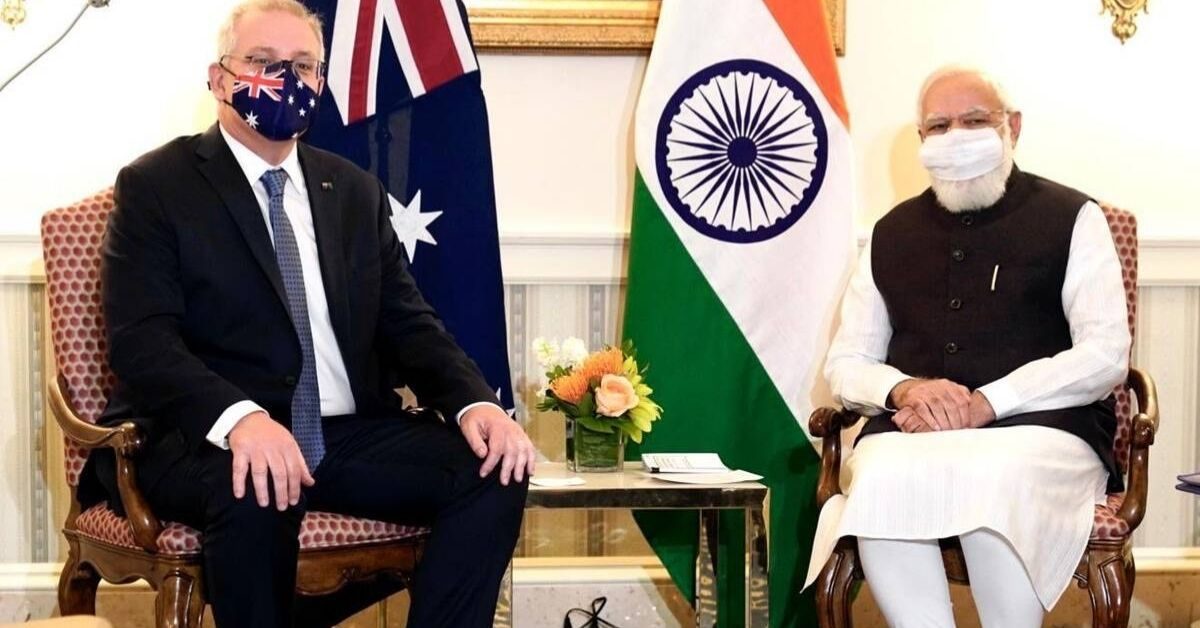BESIDES triggering a robust pushback internally, the draft e-commerce guidelines of the federal government’s Division of Shopper Affairs have drawn flak from not less than one sovereign authorities — Australia — and a number of overseas commerce our bodies for being intrusive and detrimental to commerce.
The draft guidelines revealed on June 28 search to tighten the regulation on on-line marketplaces. The Shopper Affairs Division had given time until July 21 for varied stakeholders to submit their feedback.
The Australian authorities, which is negotiating a commerce pact with India — together with a devoted chapter within the settlement on e-commerce — has formally written to the Division of Shopper Affairs declaring that the brand new guidelines would “impose intensive extraterritorial obligations on overseas e-commerce entities working in India”.
“We think about the proposed amendments could be overly prescriptive and would improve commerce obstacles, significantly for SMEs,” it wrote in an undated submission titled “Session on proposed amendments to the Shopper Safety (E-Commerce) Guidelines, 2020 of the Authorities of India” made to the Ministry of Shopper Affairs, Meals and Public Distribution.Defined
Shadow on commerce offers
AUSTRALIA’s views on India’s proposed e-commerce guidelines got here in alongside commerce pact negotiations between the 2 nations. The e-commerce sector finds a separate chapter within the pact. Detailed suggestions from different overseas foyer teams additionally exhibits how India’s e-commerce sector might more and more discover a place in commerce discussions.
A duplicate of this submission, and inputs submitted by different stakeholders for the draft e-commerce guidelines, have been obtained by The Indian Express beneath the Proper to Data Act.
Particularly, among the many seven issues it raised, are points corresponding to definition of mis-selling, necessary registration of e-commerce corporations with the Indian authorities and time stipulation to redress complaints. Additional, on the traces of issues flagged by Indian authorities departments and business gamers, Australia has additionally sought clarification on ban of flash gross sales.
“We help efforts to implement guidelines that prohibit fraudulent enterprise practices on-line. We observe nevertheless that the organisation of flash gross sales by e-commerce entities is commonplace and a broadly accepted worldwide follow. In that regard, we’d welcome clarification on how fraudulent interception may very well be decided in follow, and what “technological means” may embody,” it famous.
The Indian Categorical had reported Friday that the draft guidelines had obtained scathing suggestions from a number of authorities departments together with the Division for Promotion of Trade and Inner Commerce, the Niti Aayog, the Ministry of Company Affairs, the Ministry of Finance and the Ministry of Electronics and Data Know-how. These departments flagged a number of anomalies, questioned sure provisions, and prompt remedial tweaks with the proposed guidelines.
“In abstract, the E-Commerce Guidelines, as written, are more likely to have a major adversarial affect on Australian e-commerce entities which function in India. The Guidelines would impose unreasonable compliance prices and be significantly onerous for SMEs, which might doubtless have implications on competitors and shopper alternative in India,” the Australian authorities wrote.
E-mail queries despatched Friday to the Australian Excessive Fee in New Delhi didn’t elicit a response.
Australian Minister for Commerce, Tourism, and Funding Dan Tehan, who’s on a go to to India, instructed a press convention on Friday he had mentioned e-commerce along with his Indian counterpart and that each side had agreed there could be an e-commerce chapter within the ultimate settlement. The 2 nations have already agreed to have an interim or early harvest commerce settlement by Christmas and a ultimate free commerce settlement or Complete Financial Cooperation Settlement (CECA) by the top of 2022.
India and Australia plan to trade of provides relating to the proposed CECA settlement by October. Australia has mentioned it desires entry to Indian e-commerce channels for its premium meals, beverage, and shopper product corporations.
Along with the Australian authorities, commerce our bodies and teams representing American companies such because the US-India Enterprise Council and the US-India Strategic Partnership Discussion board too have flagged a number of issues on the proposed e-commerce guidelines in separate letters written on July 21. These pertain to clauses corresponding to nation of origin, mis-selling, registration of e-commerce entities, fall-back legal responsibility, and appointment of personnel already mandated beneath the brand new IT guidelines.
“These appointments not solely unduly add to the compliance burden on e-commerce entities, there isn’t any distinction between the roles and obligations of the varied appointees…additional, the duty of RGO (Resident Grievance Officer) by an e-commerce entity overlaps with the same obligation relevant to an middleman beneath the Data Know-how Act, 2000,” the US-India Strategic Partnership Discussion board famous in its inputs.
American corporations Amazon and Walmart-owned Flipkart command a majority share in India’s e-commerce pie. Giant home retail gamers corresponding to Reliance Industries and the Tata Group too have plans to enter the phase.
Notably, in December 2020, the US Congressional Analysis Service, a bipartisan public coverage analysis institute, had flagged issues about “funding obstacles” in India regardless of the goal to draw overseas funding. “US issues about funding obstacles persist nonetheless, heightened by new Indian restrictions on how e-commerce platforms corresponding to Amazon and Walmart-owned Flipkart conduct enterprise. From the US view, India’s weak regulatory transparency and different points, corresponding to IPR and localisation insurance policies, add to issues about FDI obstacles,” it had famous.
Source : Odisha Expo







